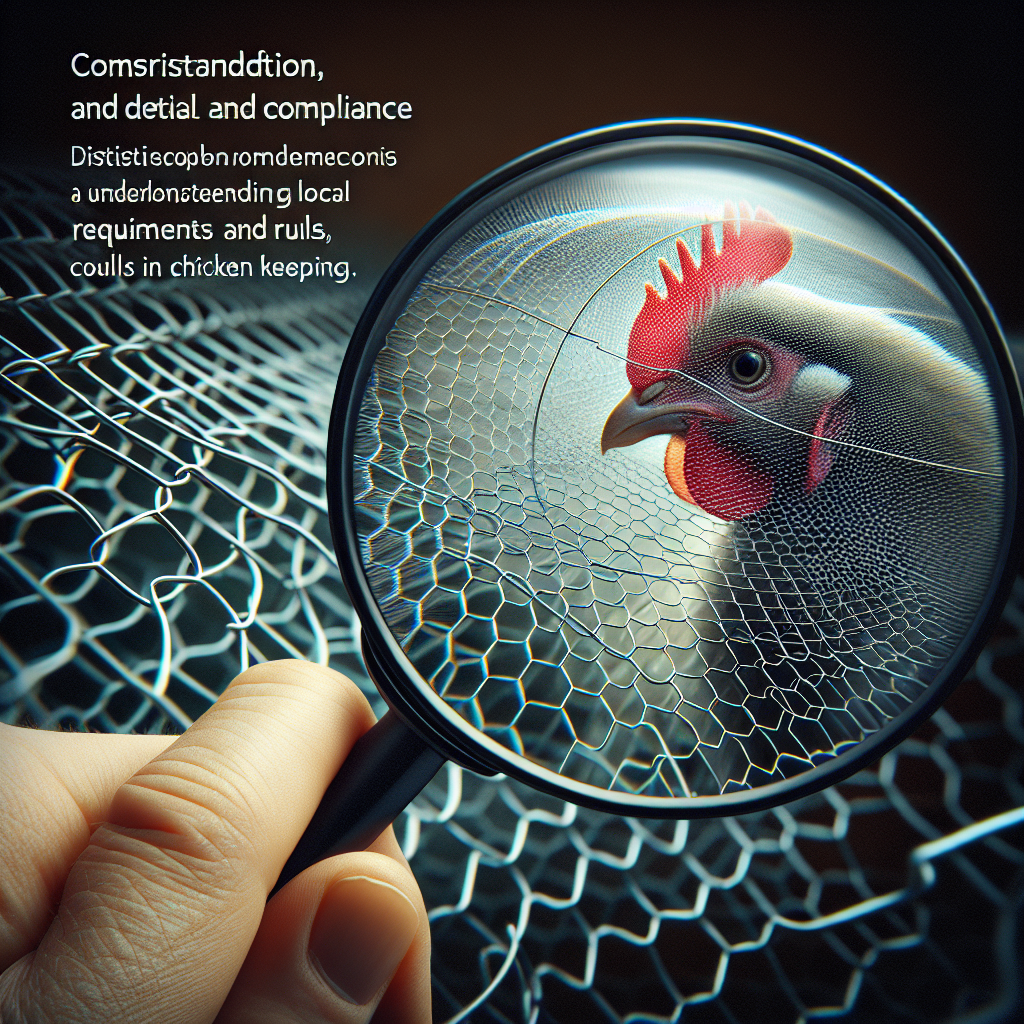If you’ve recently taken the plunge into raising chickens and find yourself in need of guidance, look no further. This article will provide you with a list of valuable beginner-friendly resources and books for chicken care. Whether you’re a first-time farmer or someone looking to expand your knowledge, these sources will equip you with the necessary information to nurture and raise healthy, happy chickens. From practical tips to expert advice, dive into the world of chicken care with confidence and embark on a rewarding journey with your newfound feathered friends.
1. Basic Chicken Care
1.1 Introduction to Chicken Care
When it comes to raising chickens, proper care and understanding of their needs are essential. This section will provide you with all the basic information you need to know to ensure the health and happiness of your feathered friends. From learning about their behavior to setting up a suitable coop and providing them with the right nutrition, this guide will set you on the right path to becoming a responsible chicken keeper.
1.2 Understanding Chicken Behavior
To care for chickens effectively, it’s important to understand their behavior. Chickens are social creatures that thrive in a flock environment. They have a natural pecking order and establish hierarchies within their groups. Understanding this social structure will help you identify and address any behavioral issues that may arise.
1.3 Choosing Chicken Breeds
Choosing the right chicken breeds for your specific needs and circumstances is crucial. There are various factors to consider, such as egg-laying capabilities, temperament, and adaptability to different climates. This section will help you navigate through the wide variety of breeds available, ensuring that you select the ones that best suit your goals and preferences.
1.4 Setting Up a Chicken Coop
Creating a comfortable and secure living space for your chickens is essential for their well-being. In this section, you’ll learn about the different coop designs and considerations, including size, ventilation, and predator protection. Whether you’re building your own coop or purchasing a pre-made one, we’ll guide you through the process of setting up a safe and functional home for your feathered friends.
1.5 Providing Proper Nutrition
Proper nutrition is vital for the overall health and productivity of your chickens. In this section, we’ll discuss the nutritional needs of chickens at different life stages, including the importance of balanced feed and supplements. Additionally, we’ll explore various feeding strategies and tips to ensure your chickens receive the nutrients they require for optimum health and egg production.
2. Chicken Health and Wellness
2.1 Identifying Common Health Issues
Being able to identify common health issues in chickens is crucial for prompt intervention and prevention of further complications. This section will familiarize you with the signs and symptoms of diseases, infections, and deficiencies that can affect your flock. By learning to recognize these issues early on, you can take appropriate measures to ensure the well-being of your chickens.
2.2 Preventing and Treating Chicken Illnesses
Prevention is always better than cure when it comes to chicken health. In this section, we’ll discuss preventive measures such as biosecurity and vaccination to minimize the risk of diseases. We’ll also cover treatment options for common ailments, including respiratory infections, parasites, and nutritional deficiencies, ensuring you’re equipped to address any health issues that may arise.
2.3 Managing Parasites and Pests
Parasites and pests can cause significant harm to your chickens if left unchecked. This section will provide you with information on common external and internal parasites that may affect your flock. You’ll learn about preventive measures, such as regular inspections and appropriate treatments, to keep your chickens parasite-free and healthy.
3. Chicken Handling and Behavior
3.1 Learning How to Handle Chickens Safely
Proper handling of chickens is essential for their well-being and your safety. In this section, we’ll guide you through the steps to safely and confidently handle your chickens. You’ll learn techniques for catching, holding, and restraining chickens without causing them stress or harm.
3.2 Understanding Chicken Body Language
Chickens communicate through various body language signals. By understanding these non-verbal cues, you can better interpret your chickens’ needs and emotions. This section will help you decipher the meaning behind their body language, allowing you to respond appropriately to their needs and maintain a harmonious relationship.
3.3 Training Chickens
Contrary to popular belief, chickens can indeed be trained! This section will introduce you to the concept of chicken training and the benefits it can bring. From simple tricks to basic commands, you’ll learn how to train your chickens using positive reinforcement techniques, bonding with them, and enriching their lives.
3.4 Dealing with Aggression or Behavioral Problems
Chickens can occasionally exhibit aggressive or problematic behaviors. In this section, we’ll discuss common behavioral issues such as pecking, bullying, and excessive noise. You’ll learn effective strategies to address and manage these behaviors, ensuring a peaceful and harmonious flock environment.
4. Egg Production and Incubation
4.1 Maximizing Egg Production
Maximizing egg production is a goal for many chicken keepers. In this section, you’ll discover tips and techniques to help increase the number of eggs your flock produces. From creating an optimal environment to ensuring proper nutrition and lighting, you’ll learn how to encourage a consistent and abundant supply of fresh eggs.
4.2 Collecting and Storing Eggs
Once your hens start laying eggs, proper collection and storage are crucial to maintain their quality and freshness. This section will guide you through the process of collecting eggs, including important considerations such as cleaning and storage temperature. By following these guidelines, you’ll ensure that you can enjoy your homegrown eggs at their best.
4.3 Incubating Chicken Eggs
If you’re interested in expanding your flock, learning to incubate and hatch chicken eggs can be a rewarding experience. This section will walk you through the process, from selecting fertile eggs to providing the right incubation conditions. You’ll gain the knowledge and confidence to successfully hatch your own chicks and start a new generation of chickens.
4.4 Hatching and Caring for Chicks
Once the eggs hatch, caring for the adorable chicks requires special attention and care. In this section, you’ll learn about the essentials of brooding, including temperature, humidity, and feeding requirements. You’ll also discover important considerations for raising healthy and happy chicks until they are ready to integrate into the main flock.
5. Chicken Breeding
5.1 Introduction to Chicken Breeding
Breeding chickens can be a rewarding endeavor for dedicated chicken keepers. In this section, we’ll introduce you to the fundamentals of chicken breeding, including the importance of selective breeding and maintaining genetic diversity. You’ll gain insights into the breeding process and the responsibilities that come with it.
5.2 Selecting Breeding Stock
Choosing the right breeding stock is essential for the success of your breeding program. This section will guide you on selecting healthy, genetically diverse birds with desirable traits for breeding. You’ll learn about traits to consider, such as conformation, temperament, egg-laying ability, and breed standards.
5.3 Understanding Genetics and Traits
Understanding the basic principles of genetics is crucial for effective breeding. This section will cover the fundamentals of inheritance, including dominant and recessive traits, and how they impact the appearance and characteristics of offspring. Armed with this knowledge, you’ll be able to make informed decisions and successfully breed for specific traits in your flock.
5.4 Managing a Breeding Program
Running a successful breeding program requires careful planning and record-keeping. In this section, we’ll discuss the importance of documenting breeding outcomes and maintaining pedigrees. You’ll also learn about rotational breeding, genetic diversity, and strategies for managing and expanding your flock through selective breeding.
6. Chicken Coop Design and Maintenance
6.1 Choosing the Right Coop Design
Choosing the appropriate coop design is essential for the comfort and safety of your chickens. This section will help you assess the available options and decide on a design that suits your needs and space constraints. From traditional fixed coops to mobile tractor-style coops, you’ll find valuable insights to help you make an informed choice.
6.2 Setting Up Coop Facilities
Once you’ve chosen a coop design, it’s time to set up the necessary facilities. This section will guide you through the process of creating a functional coop layout that includes nesting boxes, perches, and ventilation systems. You’ll also learn about flooring options, bedding materials, and the importance of cleanliness for maintaining a healthy coop environment.
6.3 Maintaining Cleanliness
Maintaining cleanliness in the coop is crucial for your chickens’ well-being and comfort. This section will provide you with essential tips and practices for keeping your coop clean and hygienic. You’ll learn about regular cleaning routines, pest management strategies, and methods for managing coop waste effectively.
6.4 Addressing Common Coop Issues
Coop issues can affect the health and safety of your flock. In this section, we’ll address common coop problems such as ventilation, temperature control, and structural security. You’ll learn how to identify and address these issues promptly, ensuring a safe and comfortable living space for your chickens.
7. Free-Range and Pastured Chickens
7.1 Benefits and Considerations of Free-Range Chickens
Allowing your chickens to free-range can offer numerous benefits in terms of their well-being and egg quality. In this section, we’ll explore the advantages of free-ranging, including increased exercise, access to natural foraging, and improved egg nutritional content. We’ll also discuss the considerations and precautions necessary to ensure their safety.
7.2 Designing a Safe Free-Range System
Creating a safe environment for free-ranging chickens is essential to protect them from predators and other hazards. This section will guide you through the design considerations, such as fencing, shelter, and predator-proofing measures. By implementing these strategies, you’ll create a safe and enriching free-range system for your flock.
7.3 Grazing Management and Rotational Pasture
Applying rotational grazing principles to your free-ranging system can provide additional benefits for your chickens and the land they graze on. This section will introduce you to the concept of rotational grazing and explain how it can enhance your chickens’ foraging opportunities while allowing the land to regenerate. You’ll learn about rotational pasture setups and grazing management strategies.
7.4 Balancing Free-Range with Coop Living
While free-ranging is beneficial for chickens, balancing it with coop living is essential to ensure their safety and well-being. This section will provide guidance on creating a schedule or routine that includes both free-ranging and coop living. You’ll learn how to manage the transition between the two environments effectively, ensuring that your chickens enjoy the best of both worlds.
8. Organic and Sustainable Chicken Care
8.1 Understanding Organic and Sustainable Practices
Organic and sustainable practices in chicken care can benefit not only your flock but also the environment. In this section, we’ll explain the principles and benefits of organic and sustainable chicken care, such as avoiding the use of chemical pesticides and fertilizers. You’ll learn how these practices promote the health of your chickens and the overall ecosystem.
8.2 Implementing Natural Remedies and Prevention
In organic and sustainable chicken care, natural remedies and preventative measures play a crucial role. This section will introduce you to alternative ways of addressing common issues, such as using herbal remedies for parasite control and managing health through natural preventive practices. You’ll discover how these approaches can contribute to the overall well-being of your chickens.
8.3 Utilizing Permaculture Principles
Permaculture principles can be applied to chicken care to create self-sustaining systems that benefit both the chickens and the environment. In this section, we’ll examine the core principles of permaculture and how they can be adapted to your chicken keeping practices. You’ll learn how to design efficient and sustainable systems that provide for the needs of your chickens while minimizing inputs.
8.4 Supporting Biodiversity and Ecosystems
As responsible chicken keepers, we can actively contribute to enhancing biodiversity and supporting ecosystems. In this section, we’ll explore ways to create habitats and provide resources that attract beneficial insects, birds, and other wildlife. By fostering biodiversity, you’ll not only create a more ecologically balanced environment but also help maintain a healthy and thriving flock.
9. Chicken Resources Online
9.1 Reputable Websites and Forums
The internet offers a wealth of valuable information for chicken keepers. This section will recommend reputable websites and forums where you can find expert advice, connect with other chicken enthusiasts, and seek answers to your questions. You’ll discover online communities that are passionate about chicken care and share their knowledge and experiences freely.
9.2 Online Courses and Webinars
If you’re looking to deepen your knowledge and understanding of chicken care, online courses and webinars can be excellent resources. In this section, we’ll highlight reputable platforms that offer comprehensive courses and webinars on various aspects of chicken care. You’ll have the opportunity to learn from experts in the field and expand your skills and expertise.
9.3 Educational Videos and Tutorials
Visual learning can be particularly helpful when it comes to understanding chicken care practices. This section will recommend educational videos and tutorials available online. You’ll find step-by-step guides, demonstrations, and informative videos that cover a wide range of topics related to chicken care. These resources will complement your understanding and enhance your learning experience.
10. Recommended Chicken Care Books
10.1 Backyard Chicken Guides for Beginners
Books are invaluable resources for those starting their chicken-keeping journey. In this section, we’ll recommend beginner-friendly guides that cover the basics of chicken care. These books provide comprehensive information, practical tips, and easy-to-understand instructions, making them ideal companions for novice chicken keepers.
10.2 Comprehensive Chicken Care Manuals
For those seeking in-depth knowledge and guidance, comprehensive chicken care manuals are an excellent investment. This section will introduce you to authoritative books that cover all aspects of chicken care in detail. From health and nutrition to breeding and coop management, these manuals provide comprehensive resources to help you become a skilled and knowledgeable chicken keeper.
10.3 Books on Specific Breeds and Topics
If you’re interested in exploring specific breeds or delving deeper into particular topics, specialized books can provide you with targeted information. This section will recommend books that focus on specific chicken breeds, their unique characteristics, and care requirements. Additionally, you’ll find books that delve into specific topics such as incubation techniques, chicken health, and sustainable practices, catering to specific areas of interest within chicken care.




